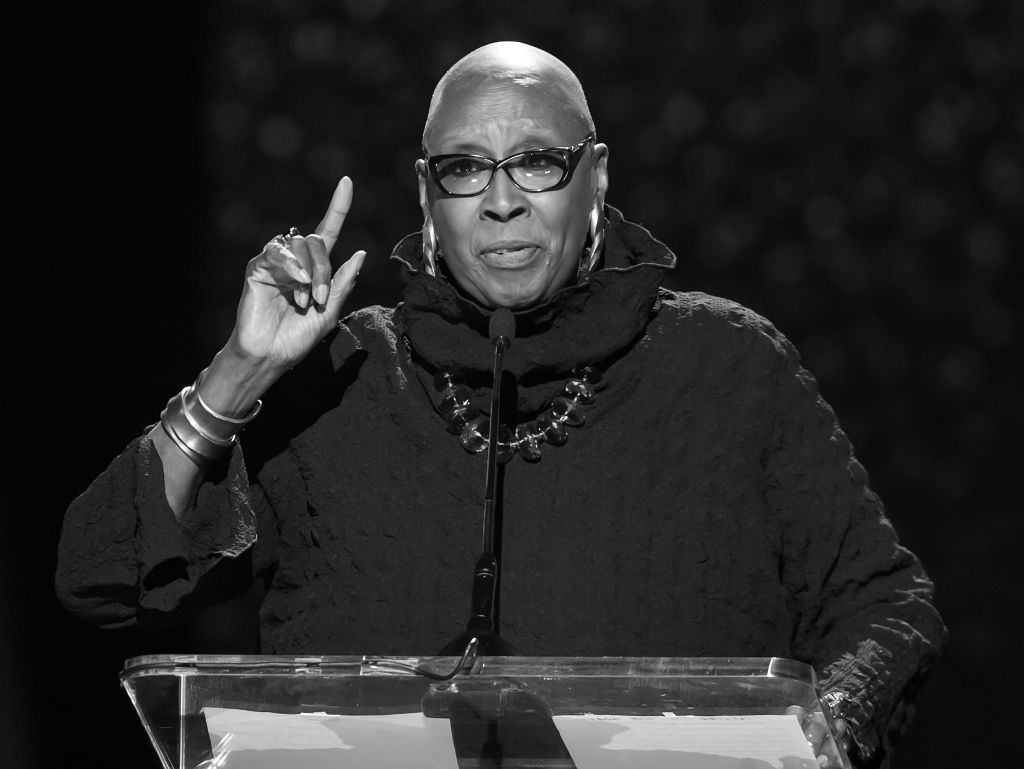A few months ago, I got food poisoning. The sequence of events that led to my downfall began with a carton of discounted grocery-store sushi purchased and consumed on a Thursday, which led to me waking up a little queasy on a Friday, which devolved into a 12-hour stretch of me vomiting and holding myself in a fetal position, until my legs ached from dehydration. On Saturday the smell of my partner cooking breakfast still made me gag; I sipped water, napped fitfully, and nibbled little golf balls of white rice.
But Sunday, glorious Sunday, I awoke to a marvelous lack of pain and fatigue. The brain fog was gone. My skin felt plump with fluids. Enthralled by recovery, I found myself behaving with uncharacteristic serenity. When I dropped and broke a ceramic bowl while unloading the dishwasher, I didn’t curse and freak out. Instead, I swept up the shards with cheer. I wouldn’t sweat the small stuff. I was my normal self again, and it felt sublime.
Yet as I relished in my newfound bliss, a foreboding thought gnawed at me: I knew that as the hours passed and the specter of illness retreated, my fresh perspective, too, would fade. So much of my exuberance was defined by absence, the lifting of the burden of aches and puking. It would only be a matter of time until normal felt normal again, and I’d be back to worrying about all the petty minutiae I always worry about.
People have different baselines of health, and some might be more or less appreciative of whatever condition they’re in. Even so, humans have long lamented the ephemeral joy of relief. The feeling manifests in all kinds of circumstances: meeting a deadline, passing a test, finishing a marathon. And it can be especially acute in matters of wellness. “Health is not valued, till sickness comes,” wrote the 17th-century British scholar Thomas Fuller. Or as the 19th-century German philosopher Arthur Schopenhauer bemoaned: “Just as we do not feel the health of our entire body but only the small place where the shoe pinches, so too we do not think of the totality of our well-functioning affairs, but of some insignificant trifle that annoys us.”
So many of us, in other words, are very bad at appreciating good health when we’re fortunate enough to have it. And anyone experiencing this transcendent gratitude is unlikely to hold on to it for long. Indeed, by Monday morning, the afterglow of recovery had worn off; I was engrossed in emails and work again, unaware that just 60 hours prior I could barely sit upright in bed, let alone at my desk. This troubled me. Am I cursed to be like this forever? Or is there anything I can do to change?
To some extent, I’m sad to report, the answer might well be no. While certainly some people can have experiences of major illness or injury that change their entire outlook on life, the tendency to revert to forgetfulness seems to run pretty deep in the human psyche. We have limited attentional resources, the UC Davis psychology professor Robert Emmons told me, so in the interest of survival, our brain tends not to waste them focusing on systems that are working well. Instead, our mind evolved to identify threats and problems. Psychologists call this negativity bias: We direct our attention more to what’s wrong than what’s right. If your body’s in check, your brain seems to reason, better to stress about the project that’s overdue or the conflict with your friend than sit around feeling like everything’s fine.
A second psychological phenomenon that might work against any enduring joy in recovery from illness is hedonic adaptation, the notion that after positive or negative life events we, basically, get used to our new circumstances and return to a baseline level of subjective well-being. Hedonic adaptation has been used to explain why, in the long term, people who won the lottery were no happier than those who didn’t; and why romantic partners lose passion, excitement, and appreciation for each other over time.
Arguably, adaptation need not be seen as any great tragedy. For health, in particular, there’s an element of practicality in the human capacity to exist without fussy attentiveness. This is how we’re supposed to operate. “If our body isn’t causing us problems, it doesn’t actually pay to walk around being grateful all the time. You should be using your mental energy on other things,” Amie Gordon, an associate professor of psychology at the University of Michigan, told me. If we had to sense our clothes on our bodies all day, for example, we’d constantly be distracted, she said. (This is actually a symptom of certain chronic disorders, like fibromyalgia—Lauren Zalewski, a writer who was diagnosed with both fibromyalgia and lupus 22 years ago, told me that it makes her skin sensitive to the touch, as if she constantly has the flu.)
All that said, there are real costs to taking health for granted. For one, it can make you less healthy, if as a result you don’t take care of yourself. For another, maintaining some level of appreciation is a good way to avoid becoming an entitled jerk. Throughout the pandemic, for instance, there has been “this language around how the ‘only’ people dying are ‘old people’ or people with pre-existing conditions,” as if these deaths were more acceptable, Emily Taylor, a vice president for the Long-COVID Alliance, a group that advocates for research into post-viral illnesses, told me. Acknowledging that our own health is tenuous—and that certainly, many of us are going to get old—could counter this kind of callousness and encourage people to treat the elderly and those with chronic conditions or disabilities with more respect and kindness, Taylor argued.
In my view, there’s something to be gained on an individual level, too. In recent years I’ve seen friends and loved ones deal with life-altering injuries and diagnoses. I know that one’s circumstances can turn on a phone call or a moment of inattention. To be healthy, to have basic needs met—to have life be so “normal” that it’s even a little boring—is a luxury. While I am living in those blessedly unremarkable times, I don’t want my fortune to escape my notice. When things are good, I want to know how good I’ve got it.
What I want, really, is to hold on to a sense of gratitude. In the field of psychology, gratitude can be something of a loaded term. Over the past decade or so, articles, podcast episodes, self-help books, research papers, celebrities, and wellness influencers alike have all extolled the benefits of being thankful. (Oprah famously kept a gratitude journal for more than a decade.) At times, gratitude’s popularity has been to its own detriment: The modern-day gratitude movement has been criticized for overstating its potential benefits and pushing a Western, wealthy, and privileged perspective that can seem to ignore the realities of extreme suffering or systemic injustices. It’s also annoying to constantly be told that you should really be more thankful for stuff.
But part of the reason gratitude has become such a popular concept is due to bountiful research that does point to genuine emotional upsides. Feeling grateful has been associated with better life satisfaction, an increased sense of well-being, and a greater ability to form and maintain relationships, among other benefits. (The research on gratitude’s effects on physical health is inconclusive.) For me, though, the pull is less scientific and more commonsense anyway: Learning to genuinely appreciate day-to-day boons like having good health, or food in the fridge, seems like being able to tap into a renewable source of contentment. It’s always so easy to find stress in life. Let me remember the things to smile about, too.
One way to make the most of gratitude may be to reframe how people tend to think of it. A popular misconception, Emmons told me over email, is that gratitude is a positive emotion that results from something good happening to us. (This might also be part of the reason it can be hard to appreciate conditions like health that for many people remain stable day after day.) Gratitude is an emotion, but it can also be a disposition, something researchers call “trait gratitude.” Some people are more predisposed to feeling thankful than others, by virtue of factors like genetics and personality. But Emmons says this kind of “undentable thankfulness” can also be learned, by developing habits that contribute to more of a persistent, ambient awareness, rather than a conditional reaction to ever-changing circumstances.
What does this look like, practically speaking? “I don’t know that we can, with every breath we have every moment, feel grateful that we’re breathing. That’s a pretty tall order,” says Gordon. “But that’s not to say that you don’t build in a moment for it at some point in your day.” If you’re recovering from a cold, for example, you can practice pausing whenever you’re walking out the door to appreciate that your nose isn’t stuffy before just barreling on with life. Another tactic, from Emmons, is to reflect upon your worst moments, such as times you’ve been ill. “Our minds think in terms of counterfactuals,” he said, which are comparisons between the way things are and how they might have been. “When we remember how difficult life used to be and how far we have come, we set up an explicit contrast in our mind, and this contrast is fertile ground for gratefulness.”
You can also think of gratitude as an action, Emmons has written. This hews closer to the historical notion of gratitude, which as far back as the Roman days was associated with ideas like duty and reciprocity—when someone does something kind for us, we’re expected to return the favor, whether that’s thanking them, paying them back, or paying it forward. In that sense, being grateful for your body probably means doing your best to care for it (and, probably, refraining from risky behaviors like rolling the dice on discounted grocery-store sushi).
In 2015, Lauren Zalewski, the writer with fibromyalgia, founded an online community that supports people living with chronic pain by helping them to cultivate a grateful mindset. She tells me that before her diagnosis, she took her health for granted and “beat her body up.” Now, she eats vegan, takes supplements, does yoga, stretches, sleeps more, and gets sun regularly—these are the small things she has personally found helpful for managing her constant pain. “So while I am a chronically ill person,” she muses, “I consider myself pretty healthy.”
Looking back on my food-poisoning incident, I think I was primed to ruminate more deeply than usual on the topics of sickness and health. In the past two and a half years, I’ve watched COVID-19 show that anyone can get ill, perhaps seriously so. Now, as the head of the World Health Organization tells us that “the end is in sight” for the pandemic (and President Joe Biden controversially declares the pandemic over), it’s tempting to imagine that humanity is on the brink of waking up the morning after a hellish sickness.
It’s probably delusional to hope that even a global pandemic could prompt some kind of long-term collective mental shift about the impermanence of health, and of life. I didn’t become a radically different person after recovering from puking my guts out a few months ago either. But maybe the simple act of remembering the health we still have in the pandemic’s wake can make a small difference in how we go forward—if not as a society, then at least as individuals. I’m sure I’ll never fully override my tendency to take my body for granted until it’s too late. But for now, each day, I still get the golden opportunity to try. And I’d like to take it.





















Discussion about this post